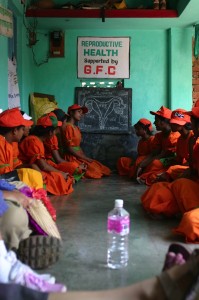
FGM is Female Genital Mutilation, is defined by the World Health Organization (WHO) as “all procedures that involve partial or total removal of the external female genitalia, or other injury to the female genital organs for non-medical reasons.”[1] FGM is often a part of growing up for girls, particularly in Africa and parts of the Middle East and Southeast Asia. FGM has many negative effects on the health of girls and women in these parts of the world including fatal hemorrhaging, epidermoid cysts, recurrent urinary and vaginal infections, chronic pain, and obstetrical complications.
There are a number of organizations working to end this harmful traditional practice, perhaps the best known of which is Tostan, which has made great strides working with communities and religious leaders to reduce the use of the practice in Senegal and beyond.
